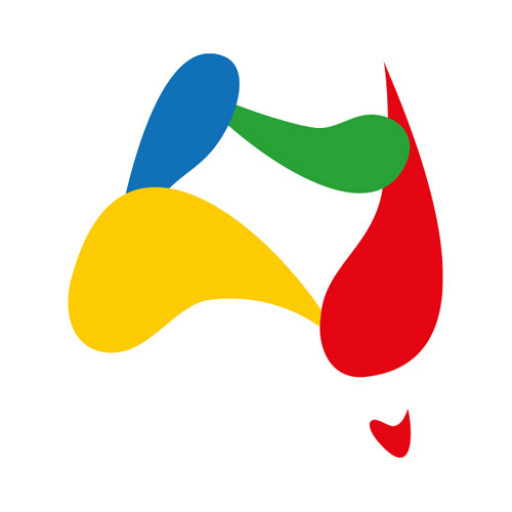Program description: The Diploma of Individual Support at Swinburne University of Technology is a comprehensive qualification designed to equip students with the essential skills and knowledge required to provide high-quality support to individuals in a variety of community settings. This program focuses on developing both practical abilities and theoretical understanding to enable graduates to assist people with diverse needs, including those with disabilities, the elderly, and other vulnerable populations. Through a combination of classroom learning and hands-on placements, students will learn how to deliver personal care, support wellbeing, promote independence, and adhere to legal and ethical standards in the provision of support services. The curriculum covers key areas such as communication skills, understanding diverse needs, safeguarding practices, and health and safety protocols. The program emphasizes person-centered approaches, ensuring that students can tailor their support to meet individual preferences and requirements. By completing this qualification, students will be prepared to work confidently in various settings such as aged care facilities, community health organizations, and disability service providers. The Diploma of Individual Support also offers pathways to further study or employment in the healthcare and community services sectors. Swinburne’s renowned teaching staff, industry connections, and focus on practical experience make this program a valuable stepping stone for those aspiring to contribute meaningfully to the wellbeing of individuals and communities. Graduates will be equipped with the essential skills needed to make a positive impact, support independence, and uphold dignity in the delivery of personal care and support services. The program is aligned with current industry standards and practices, ensuring that graduates are workforce-ready and capable of meeting the evolving needs of the community sectors they will serve.
The Bachelor of Individual Support at Swinburne University of Technology is a comprehensive program designed to equip students with the essential skills and knowledge required to provide high-quality care and assistance to individuals with diverse needs. This qualification prepares graduates to work effectively in aged care, disability support, and community services, contributing to the well-being and independence of clients in various settings. The program covers a wide range of theoretical and practical elements, including understanding the diverse needs of individuals, communication skills, ethical and legal considerations, as well as developing and implementing support plans. Students will gain hands-on experience through practical placements in real-world environments, enabling them to apply their learning in a workplace setting and develop confidence in delivering person-centered care. The curriculum emphasizes the importance of promoting dignity, respect, and autonomy for all clients, adhering to industry standards and best practices. Throughout the course, students learn about managing complex care situations, working collaboratively with multidisciplinary teams, and responding appropriately to emergencies and challenging behaviors. The program also addresses current issues in the sector, such as culturally inclusive care, aging population challenges, and the integration of technology in support services. Graduates of this program will be well-prepared for a rewarding career supporting vulnerable populations and contributing positively to their quality of life. The Bachelor of Individual Support combines flexible learning options with rigorous academic standards, ensuring students develop both theoretical understanding and practical skills to excel in the dynamic field of support work.
Program Requirements:
To enroll in the Bachelor of Individual Support at Swinburne University of Technology, prospective students must meet several entry criteria. Applicants generally need to have completed secondary schooling that is equivalent to the Australian Year 12 qualification or possess relevant prior learning or work experience demonstrating their suitability for the program. International students are required to demonstrate proficiency in English, typically through a test such as IELTS with a minimum overall score of 6.5, with no band less than 6.0, or equivalent scores in other recognized English language assessments.
The program emphasizes practical skills and knowledge in providing support to individuals with diverse needs, including the elderly and those with disabilities. As such, applicants must be able to demonstrate a compassionate approach, effective communication skills, and a commitment to promoting the wellbeing and independence of others. Some courses may have specific prerequisites or recommended prior knowledge in health or social sciences.
In addition to academic prerequisites, applicants are often required to undergo a police check and immunization screening to ensure suitability for work placements, which are integral to the program. These placements enable students to gain real-world experience in health and community services settings, and meeting these requirements is essential for progressing through the program.
Candidates must also possess certain personal attributes, such as resilience, empathy, and the ability to work collaboratively within multidisciplinary teams. Demonstrating a clear understanding of ethical considerations, confidentiality, and respecting diversity is vital. For mature-aged applicants, relevant work experience in health, community services, or related fields can strengthen their application and demonstrate their commitment to a career in individual support.
Acceptance into the program is subject to meeting all entry requirements and the outcomes of any required assessments or interviews. Once admitted, students are expected to adhere to the university's academic and conduct standards, participate actively in coursework and practical placements, and complete all core courses within designated timeframes to attain the qualification successfully.
Overall, the Bachelor of Individual Support program at Swinburne aims to equip students with the necessary skills, knowledge, and ethical grounding to deliver quality support services independently and professionally, contributing positively to the health and wellbeing of individuals and communities.
The Bachelor of Individual Support at Swinburne University of Technology offers a comprehensive financing options framework designed to assist students in managing the costs associated with their higher education journey. Funding opportunities include government loans such as the Higher Education Loan Program (HELP), which encompasses various schemes like the FEE-HELP and the VET Student Loan, allowing domestic students to defer their tuition fee payments. International students are typically responsible for their tuition fees upfront or through external financial arrangements, as government-funded loans are generally unavailable to them. Swinburne also encourages students to explore scholarships and grants, which can substantially offset tuition costs; these are often awarded based on academic merit, financial need, or specific demographics, and applications are usually submitted during the admissions process. Additionally, some students may access private loans or financing plans offered through financial institutions, although these are not directly administered by Swinburne University. The university provides detailed financial guidance and support services to assist students in understanding their options, including workshops on budgeting, financial planning, and understanding the implications of different funding sources. It is important for prospective students to carefully consider their financing choices early in their academic planning to ensure sufficient funds are available throughout their studies. Swinburne also promotes part-time work opportunities, both on and off-campus, to help students generate income while studying, thereby reducing financial burdens. Overall, the university's approach to financing education emphasizes accessibility and support, ensuring students can pursue their qualifications in Individual Support without undue financial hardship. This alignment with national higher education funding policies underscores Swinburne’s commitment to enabling students from diverse backgrounds to access quality education and develop the necessary skills for careers in support services.
The Bachelor of Individual Support at Swinburne University of Technology is a comprehensive program designed to prepare students for a rewarding career in supporting individuals within various care settings. This program emphasizes both theoretical knowledge and practical skills necessary for effective person-centered care, focusing on assisting individuals with a range of needs, including those with disabilities, aging populations, and health challenges. Throughout the course, students engage in a variety of learning activities, including lectures, workshops, and hands-on placements that provide real-world experience in community and healthcare environments. The curriculum covers essential topics such as communication skills, ethical considerations, cultural competence, and understanding diverse needs. Graduates of the program are equipped to work in roles such as personal care assistants, support workers, and community care providers. Swinburne's approach involves collaborative learning and industry engagement to ensure students are workplace-ready upon graduation. The program also offers pathways for further study in health and community services, enhancing career advancement opportunities. The institution's strong links with industry partners ensure that the content remains relevant to current sector requirements. Additionally, students are supported through dedicated academic advisors and access to various resources to facilitate their learning journey. The program is suitable for those interested in making a positive difference in people's lives through compassionate and professional support services.





